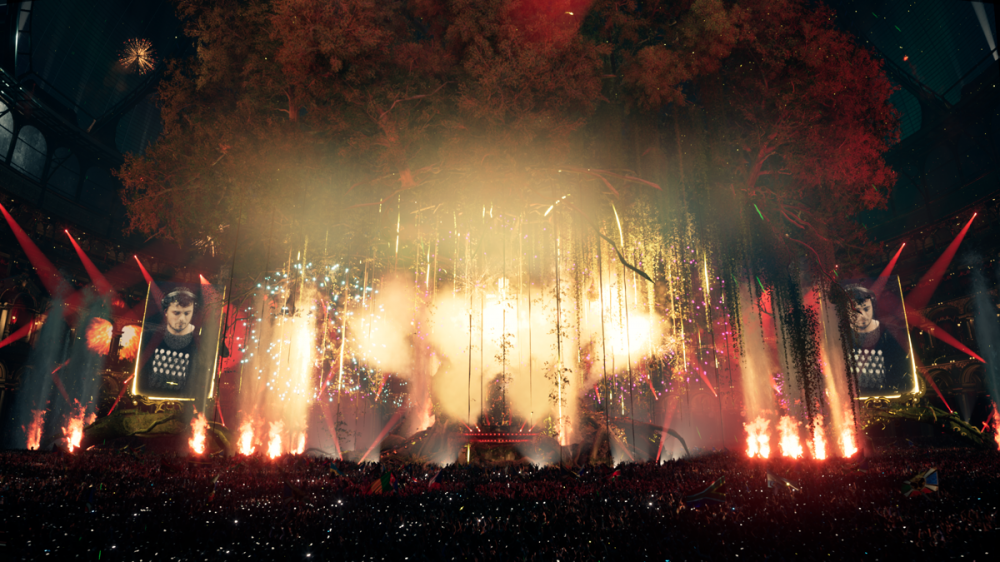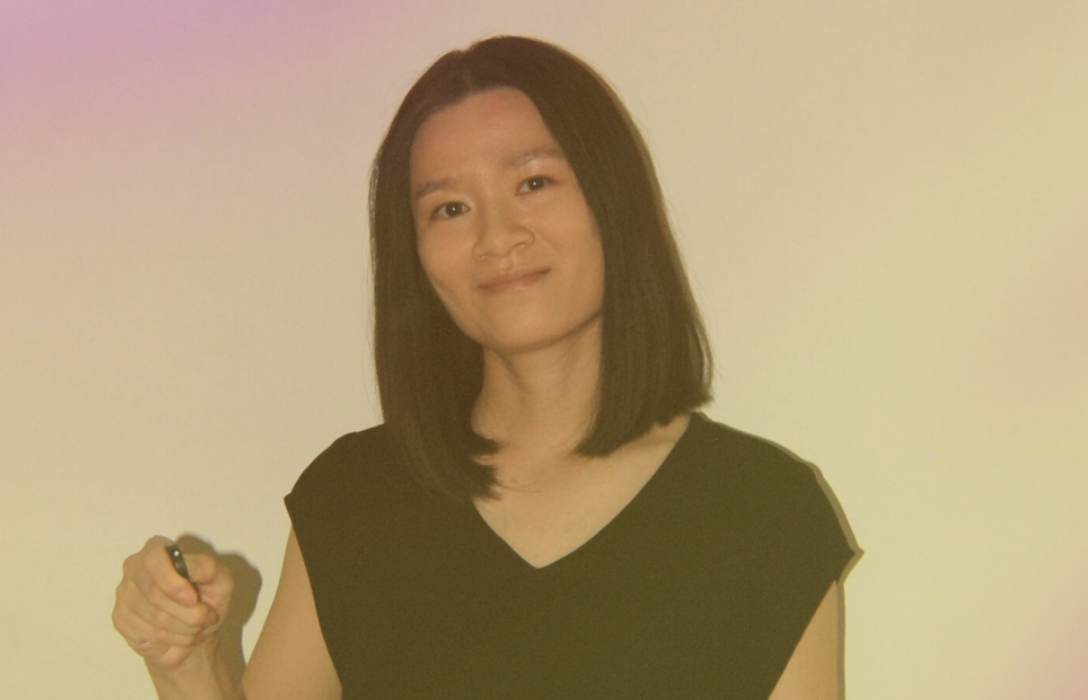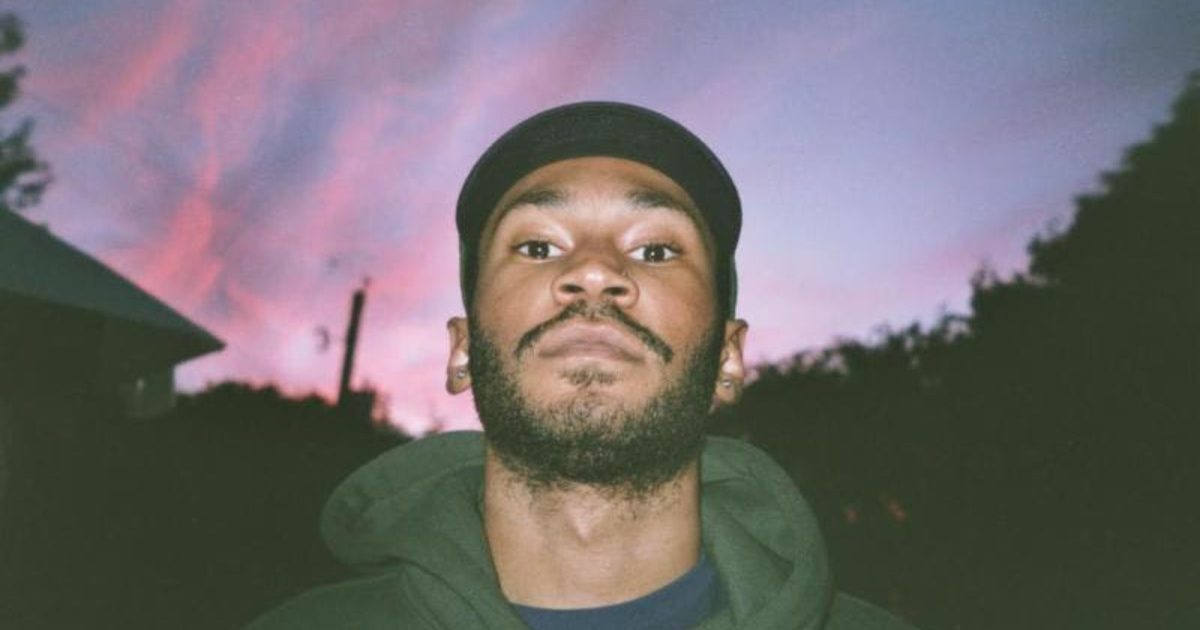
George Fitzgerald talks space ships, crate digging and new album ‘Stellar Drifting’
George Fitzgerald is a name that traverses several territories of the modern dance music landscape, and is equally respected in all. While the world was being kept on it’s toes by the seemingly endless innovation from the UK Bass continuum, the Watford-hailing producer emerged in 2010 with a sound that blended the echoes of garage and dubstep with the luxurious sounds of contemporary club music.
Beginning as a teenager working for revered London record outlet Black Market Records, Fitzgerald’s musical journey brought him all the way to Berlin, where he began releasing a string of 12 inches on Hotflush, Aus, and his own imprint ManMakeMusic. Since then, his style has evolved indefatigably, sprawled over 4 studio albums, including one as OTHERLiiNE in collaboration with fellow bass alchemist Lil Silva.
Over a 40 minute phone call from his London studio to Sydney, we caught a chance to talk about everything from his vinyl store origins to the intergalactic themes of his new full-length LP Stellar Drifting.
Stoney Roads: Beginning at Black Market Records, what kind of dance music culture were you a part of? Did it inspire you to become a bit of a crate digger?
George Fitzgerald: I had been collecting records and DJing quite a lot before then, and when I was a kid, the most famous record shop was Black Market. I’d go there to buy a lot of garage and drum and bass records. When I was working there, I was more in the deep house/house/techno section, and then downstairs was always dubstep and drum and bass. Basically it was towards the end of it’s life, and there would be days where it would be really busy, and then cool off the next, so I’d have loads of spare time on some days to trawl through all the records and listen to every side, which gave me an education in dance music that I hadn’t had yet. Without the experience of working there, I probably wouldn’t have gotten into dance music as much, because my friends weren’t into it at the time. There was always loads of US imports there, stuff like Ron Trent, Kerri Chandler and so on. People loved those records.
SR: What kind of conversations did you have with other musicians there?
There was quite a diverse array of people who used to come in. There was the odd well known DJ who would come in for new records to play, but also older people who were the seasoned record collectors. There was also just the complete music freaks who would come in, and you could learn a lot from them as well. I loved the massive community around that record shop. That was my reason for working there.
It’s weird, because there was definitely this air of “do you have X, can you sell me it?”, but also this other record shop type of culture where people were like “what’s come out this week? Can I hear it?”, and you’d just get loads off the shelves and listen to a bunch of new dance releases with the customers. You really got to know people’s tastes.
SR: Did you have a dance music awakening early on, or was your path to discovery through another style of music?
GF: I think for me, it was when garage when it really started to take off in the UK. I had an older brother who was into really good music as well, so that helped. Once I was 12 or 13, and old enough to go out on my own and get my own records, it was garage records I was seeking out and getting – really kind of early 2-step records. Funnily enough in London there weren’t many kids that were into house and techno. There was a huge scene for it of course, especially at the time, but it was more for people who were a bit older than me. The kids were more into garage, D&B, indie, rock, metal and a whole range of things like that, but I never had friends that were really into club music. It wasn’t until I got to Berlin that I actually dived into that world. I had been going to clubs in London for a very long time, but that was more for those other styles mentioned rather than house music. Technically I suppose they were still raves, but it wasn’t dance music in the same sense of Berlin, or even Ibiza and Miami or whatever. I’ve kind of had a bit of a journey with dance music.
SR: How did your time in Berlin shape your current sound?
GF: I spent so much time there that it definitely had some impact, but even in Berlin I was also more of a UK artist. Berlin for techno is kind of like what LA is for actors. There are so many producers there who are all just operating alongside each other and doing their own thing. There’s a definite Berlin scene, but you can also live completely independent of that, and just develop your own sound by yourself. For me it was a bit of both. I definitely took an interest in what was going on there, and I played by fair share of clubs, but my music ultimately still sounded like the work of someone who grew up listening to UK garage. In the more spacey dub techno patches, there’s definitely more of a Berlin edge to that, and I think my music can have more of an atmospheric quality that wouldn’t be so common in garage also.
It’s strange because I think other people are much more fit to take apart my sound than I am. My influences are quite subconscious in that way, and I never consciously aim to be influenced by any particular thing. Some people tell me my slower tracks sound like trip-hop, and I mean, as a kid of the nineties, that’s definitely going to come through, because all the slow music I used to listen to was trip-hop. My time in Berlin was so influential to me as a producer, but at the same time, I think the other music I’ve loved throughout my life has kind of derailed my music from being straight house or techno.
SR: I’ve noticed a lot of UK producers have brought those influences to Berlin, and now there’s something of a dialogue. You’ve got Moderat programming 2-step style beats, and vice versa there’s also a lot of UK producers migrating there and assimilating to a more Berlin sound.
Over the past decade or two, there’s been kind of a tradition of UK artists moving over to Berlin and vice versa, just to give themselves a change of stimuli and sound to develop their own work, but also I think there’s always been a big space for UK artists in Berlin as well, so it’s an easy transition.
SR: How do you manage to make electronic music sound so organic?
GF: I think a big part of it is just not working on the grid. Keeping some of the mistakes in there, and having fun hitting record and letting loose – not being too militant about the whole thing. Quantising everything can work I think, and that’s it’s own style and approach, but for my style of music, if you quantise the shit out of everything, it can very quickly start to sound stale. I like my process to be a bit like throwing paint at a canvas – just putting everything on record, playing around and letting it get messy. It might sound like racket to begin with, but then you’ll splice together the best 5 second clips out of a 5 minute recording of a synthesiser. It’s a bit of a collage.
SR: You mentioned working with audio. On the newer tracks there’s what sounds to me like elements of granular synthesis, where you’re taking audio and just grinding it up into pure tones. What kind of production methods were used for this record?
GF: There’s quite a bit of granular synthesis on this record actually, yeah. That was something I really got into during the making of this album. There’s still quite a lot of analog stuff on this album too like in the past, but I also got really into wavetable synthesis and building my own wavetables.
I got really bored during the pandemic and started obsessively looking at stuff from the NASA space archives, and taking images from the Hubble telescope and loading them into Ableton and Serum to see what they’d sound like, so I’d have this oscillator which would translate these images into a wavetable. Some of it didn’t sound so great, obviously, but there were parts that sounded really interesting and ended up on the album. You just have to play around with it.
SR: I can’t comprehend what an image from the Hubble telescope would sound like.
GF: I think when it sees a picture of a planet, it just bases the sound off what’s light and dark, and when you input something which is like a big blob of light surrounded by darkness, it actually gives you something quite similar to a regular sawtooth wave with little bits of interference on it. It gives you something similar to one of these more complex wavetables from Serum or any kind of modern wavetable synth.
The thing about software is you can really make anything out of anything, so I just thought I could use it as some kind of a starting point and then see where I’d end up, just as a fun new thing to do. Instead of using found sounds and field recordings like on past albums, I sampled a lot of NASA space static and dived into building my own synthesis processes.
SR: Did this intergalactic obsession of yours become the theme and title of Stellar Drifting?
GF: Yeah, but not in a science fiction kind of way. I think the title of the record and some of the galactic themes point towards the escapism of space and stargazing. It’s like the appeal field recordings or appreciating the sounds of the ocean and rainforests. It’s something to get lost in, and gives you an idea that there’s something bigger out there than ourselves.
SR: What other tools did you use for the record besides planets?
I think the SH-101 is a classic that I never get bored of. A lot of my new modular system was used as well for the first time. As for polyphonic synths, I’m using the Prophet, as well as a load of soft synths in the box. I was quite into a lot of early digital synths as well, like the Access Virus behind me. I think people in general are starting to get back into the early digital synths because people have been relying on analog for so long, and have realised that a lot of the early digital synths and effects units have a character of their own.
SR: Where did the string orchestra on Stellar Drifting come from?
I recorded the the strings with a real string quartet. I wrote all of those parts first using basic Kontact libraries, and then scored them out with a friend for players and recorded them properly. I think you can do it both ways, I mean some of these Kontakt and Spitfire libraries sound incredible now and it can get hard to tell the difference, but there’s still something exciting about recording real players in a room.
SR: How do you plan on performing the record live?
It’s a lot harder post-covid to bring a bunch of people around the world, but when it comes to it, I plan on performing with a band, but doing it in a way that’s more reminiscent of old school techno shows, where it’s more continuous and seamless in flow. I definitely think taking apart the tracks and being more hands on is where my heart is now rather than DJing, and performance was such a big part of my life leading up till covid.
Stellar Drifting is out now on Domino Records


